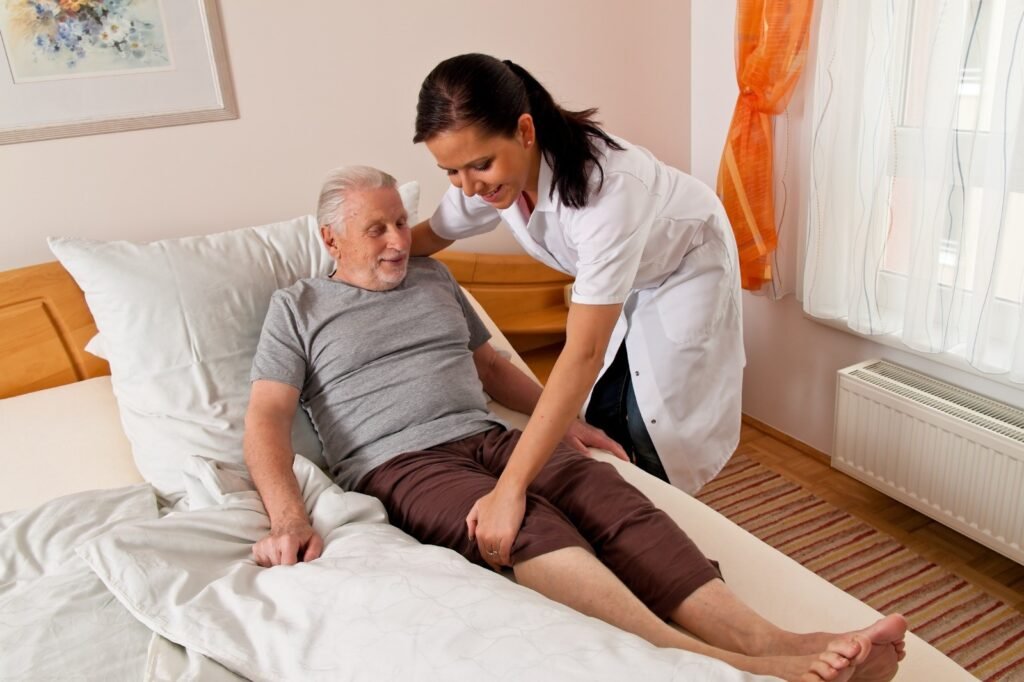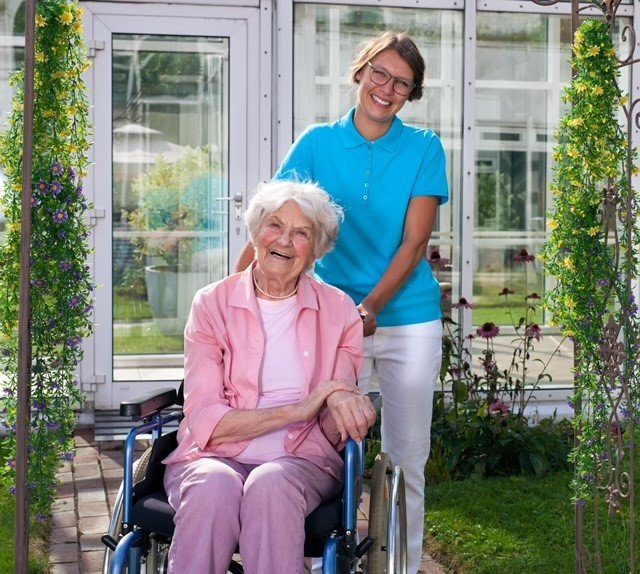Live in Care
All Services
Quick Contact

What is live-in care?
Live-in care is when a carer moves into a service user`s home and this enables the Service user to stay at home in their familiar and relaxed surroundings with a bespoke level of one-to-one support.
One of the main benefits of live-in care is that it helps service users to retain as much independence and dignity as possible whilst safely receiving an individual-tailored service to their specific needs.
Another benefit is, that our carers will assist the Service Users in all areas where it is needed the most, i.e. personal care (showering, dressing, toileting) Household activities (laundry, ironing, dusting, and light cleaning)
Live-in care is a far less costly alternative to assisted living and nursing home facilities.

Administration of prescribed medicines (using recorded MarsChart)
Social support Aided mobility
Companionship
Assistance in events, shopping and social gatherings and more.
Having a live-in carer can make a real difference to your loved one's quality of life, and it can allow you to relax, knowing they are safe. Up to 12 hours (09:00 to 23:00 including 2 hours uninterrupted break) care at home is the most common alternative to a care home. It is a personalised home care service that allows you or your loved one to receive tailored support that matches their current lifestyle and routine with round-the-clock live in care readiness, full control and independence One-to-one support, feeling safe in your own home, nutritious meals every day etc. Whilst residential homes can offer a good quality of care, for most people the benefits of staying in their own home are clearly preferable.
At Expectation Care we strive to make a positive difference in people’s lives. All our carers are passionate about helping others and have high-quality care qualifications and relevant UK-based experience. We understand the importance of independent living and respect our client’s privacy and dignity at all times. We offer highly personalized support for the elderly and young adults with learning disabilities. Our carers support people with dementia, Alzheimer’s, Parkinson’s, and more. We provide care after hospital discharge and respite covers.
0
Nursing Staff
0
Senior Doctors
0
Happy Couples
Care Categories
Our care categories are specifically designed for your specific needs. These are divided into four categories mainly based on dependency i.e. mobility, mental capacity, general risk, personal Care requirement etc.
This is for Service Users who are independent,
They are mobile with aids.
Capable of carrying out most or all tasks/duties with minimum supervision or support.
The carers will support with domestic duties (cooking, cleaning, and shopping).
Providing companionship.
Supervision with events and medical appointments.
Supervision with continence care.
For Service Users with limited independence
This is a combination of category A and B services, that is, providing assistance with domestic duties (cleaning, cooking, and shopping).
Providing companionship.
Assisting with events and medical appointments.
Support with activities of daily living.
Assistance with incontinence care.
Require mobile assistance,
Suffers from dementia
Physical disability
Partially bedbound
For Service Users with total dependence
This is a combination of category A, B, and C services, this is caring for someone with dementia, diabetes, a terminal illness or post-operative care following major surgery.
The Service User depends on the carer for every if not all activities, and support with domestic duties (cleaning, cooking, and shopping).
Providing companionship and assisting with events and medical appointments.
Double incontinence care.
Dementia, Alzheimer’s and Stroke care.
Physical disability & completely bedbound.
FULL COMPLEX CARE
Complex care refers to care for people who have chronic or long-term health conditions, including but not limited to acquired brain injuries, neurological conditions, spinal injuries, disabilities or even the use of feeding tubes.
Complex care needs can be cared for through a variety of services, such as Live-in Care (sometimes called complex care at home) which offers round-the-clock support to you in your home, so you can receive the care you need whenever you require it.
For the service user and their family, it can be challenging to find careers with the experience needed for individual complex care needs. However, having skilled complex careers will really strengthen the care already being provided.
How do I know what category of care is suitable for me
Before a decision is made, an assessment will be carried out at the location of care and the suitable care package will be advised.
How do I know what category of care is suitable for me
Before a decision is made, an assessment will be carried out at the location of care and the suitable care package will be advised.

What about my safety?
All our careers are;
- Fully Qualified in care and passionate about helping others
- Well-spoken English and Friendly
- Enhanced DBS checked
- Individually selected by us through internal recruitment process
- With experience in social care and the health sector
- Being able to live with any Service User for long-term
- Ability to cope with emergency situations
- Empathy and passion for helping others
- Ability to understand and follow instructions
What about the cost?
All costs will be based on the assessment, but on average,
- Category A cost between £700 - £900 per week
- Category B cost between £900 - £1300 per week
- Category C cost between £1300 - £1600 per week
- Complex Care cost between £1500 - £2000 per week
Live-in care is a far less costly alternative to assisted living and nursing home facilities.
What are my preparations for the career to move in?
- A suitable place/room to stay in, with complete privacy.
- A suitable bed to sleep in.
After the career moved in, what next?
- The carer will assist you in the category agreed to and log observations in order to maintain a quality service.
- The carer must have a minimum of 2 hours uninterrupted break daily.
- Be allowed to prepare their own meals, which you are not responsible for.
- Be allowed to maintain their personal hygiene (use of lavatory, washing, brushing of their teeth etc.)


